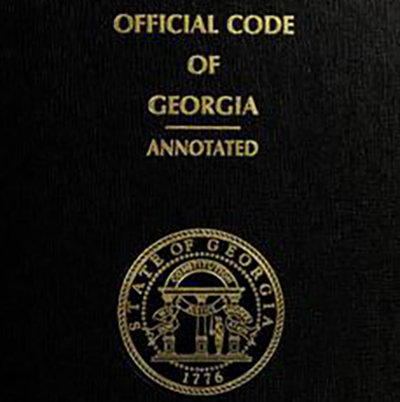SCOTUS agrees to decide whether annotated state laws can be copyrighted

A bound volume of the Official Code of Georgia Annotated. Photo from the Georgia Code Revision Commission.
The U.S. Supreme Court agreed Monday to decide whether annotations of the Georgia state code can be copyrighted.
The court agreed to decide Georgia’s appeal in its suit for copyright infringement against open law advocate Carl Malamud. Malamud had bought and scanned 186 printed volumes of Georgia’s annotated code and posted it to his website, Public.Resource.org.
The National Law Journal and Reuters have coverage of the cert grant. The SCOTUSblog case page is here.
Georgia contracts with Matthew Bender & Co., part of the LexisNexis Group, to compile the Georgia code and to prepare annotations to the provisions that include relevant judicial opinions, according to the cert petition.
The 11th U.S. Circuit Court of Appeals at Atlanta had ruled for Malamud in October 2018. The appeals court said annotated state code cannot be copyrighted and belongs in the public domain.
The 11th Circuit noted that the annotated Georgia code is the official version of the state’s laws. Although the annotations don’t have the force of law, they are “part and parcel of the law,” the appeals court said.
Georgia argues that the 11th Circuit decision conflicts with an 1888 U.S. Supreme Court decision that allowed a copyright for annotated official decisions of the Illinois Supreme Court.
The case involves the judicial edicts doctrine, which holds that copyright protection is not available for “government edicts” such as judicial decisions and statutes. According to the cert petition, the 11th Circuit wrongly extended the doctrine when it ruled that annotated laws can’t be copyrighted.
The case is Georgia v. Public.Resource.org.



